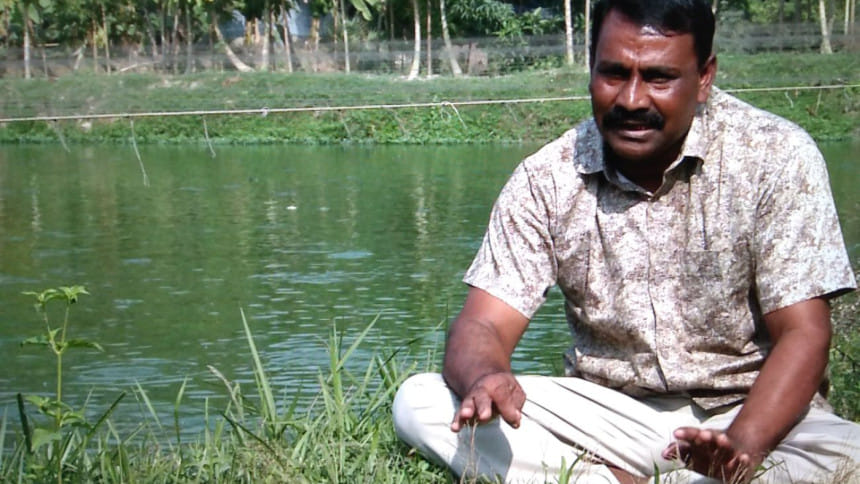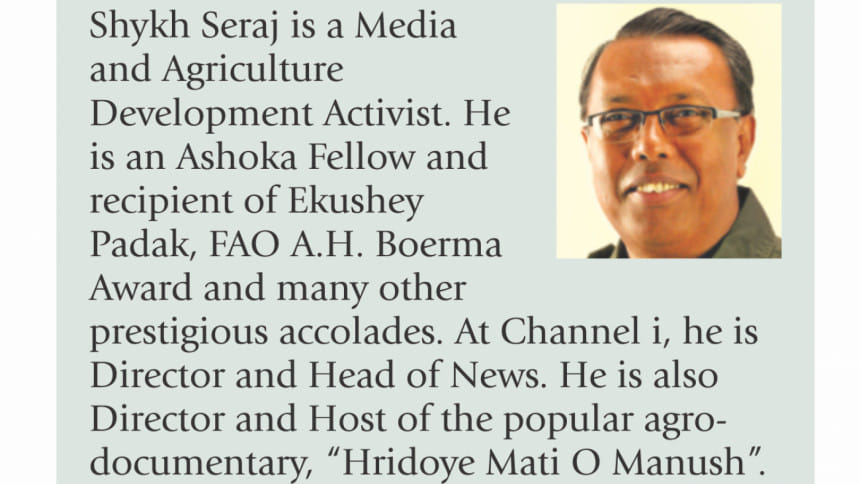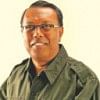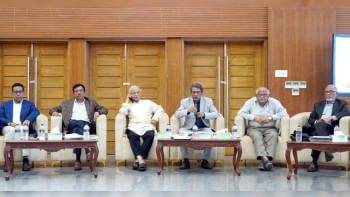A change maker in fish farming

Do you remember the TV campaign, Hakim Ali’s fish farm during the 80s which was broadcast on Bangladesh Television (BTV)? He was an inspiration for a lot of fish farmers in the country. During the past two decades there has been a revolution in fish farming in the country. Bangladesh has ranked third in the world in terms of inland fish production in 2018, according to a report by United Nation’s Food and Agriculture Organization (FAO). After ranking fifth last year in production of farm fish, the country now only trails behind China and India, ranked first and second, respectively. In FY 2018, Bangladesh earned Tk 4,500 crore by exporting around 69,000 metric tons of fish and fish products. As per the records of Bangladesh Economic Review, fisheries sector contributed 3.57 percent to the national GDP in FY 2018. The average per capita fish consumption in the country is 62.58 grams per day, against the daily requirement of 60 grams.
The Director General of Bangladesh Bureau of Statistics, Dr Krishna Gayen recently said that during the current fiscal year, Bangladesh has already produced 41.34 lakh metric tons of fish.
Bangladesh is now a leading fish producing country, fulfilling 58 percent of the protein requirement of people from fishes. I have shown you a number of successful fish farmers from different parts of Bangladesh through Channel i’s Hridoye Mati O Manush and BTV’s Krishi Dibanishi. Today I am going to bring to you the story of another farmer’s success.
Borabo village in Narsingdi’s Polash upazila is full of greenery like any other village in Bangladesh. Once upon a time the fields were full of paddy. However, the socio-economic state of this village has changed due to fish farming. Ponds after ponds have been dug for fish cultivation, replacing rice fields. Fishes like Vietnamese koi, local catfish, carp and others are cultivated in large scale. The pioneer of this change is Abul Hashem. Once a landless man struggling for livelihood, he has become a change maker in his area through sheer effort and hard work. In 2007 he started his own fish farm after taking lease of a one-bigha pond. From there a new chapter began in his life. Afterwards, he continued getting steady success and he didn’t have to look back. The fish farming area, number of fishes -- all started going up. His total fish farm expands over 200 acres of leased land. Where mostly Thai koi and monosex tilapia are being cultivated. In 50 enclosures, big and small, around 400 to 450 metric tons of fish are being produced. The price of which is approximately Tk 6 crore (USD 708,925). Yearly profit is over Tk 1 crore (USD 118,154).
Fish has brought enrichment and development to Hashem. He has come to this position through hard work and efforts. Most of all, it is his courage to invest. He knows that fish farming through hard work is the main reason behind his success. That is why he calls fish farming his industry and he has involved all his family members in it.
Here I recall the story of another successful fish farmer Abul Hashem. He’s from Mymensingh. Nearly fourteen years ago he had shown me his fish ponds and told me that it was his bank. By netting fish from the pond he would get the money and so, he treated the pond as bank for generating cash.
Narsingdi’s Abul Hashem keeps on sharing his story of success. He has changed his life through farming fish. Once he lived in a small house, which has been replaced by a big building. He is preparing to make it even bigger. His wife Yeasmin Begum has been his partner in his rise from an ordinary condition to solvency.
I asked Yeasmin Begum about Abul Hashem’s change. She told me this didn’t happen by any magic. Hard work has brought him this success. Locals too say the same thing. He has not only changed his own fate but also opened the eyes of all in the village. He has taught them the ways of changing life.

He has made dairy and poultry farm too. And on the banks of the big ponds he has planted papaya, banana, gourd, pumpkin and other vegetables in a planned way. This too brings him profit. He is also engaged in large scale sale of fish feed.
People like him are now spinning the wheels of economy. People like Abul Hashem are behind the development that we are dreaming of. They are the true examples. The story of Abul Hashem will inspire many others.
By 2021 Bangladesh expects to produce 4.5 million metric tons of fish. Alongside the enormous possibility of farming freshwater fishes, there is ample scope for salt water fishes. Bangladesh now ranks 25th in terms of sea fish farming. Fish bears great prospect for the economy of this country. The young people can utilize this opportunity to create their own employment, which will also contribute to the country’s economy. Following Abul Hashem, more farmers will come forward to take part in this development process of Bangladesh, I am sure.

 For all latest news, follow The Daily Star's Google News channel.
For all latest news, follow The Daily Star's Google News channel. 



Comments